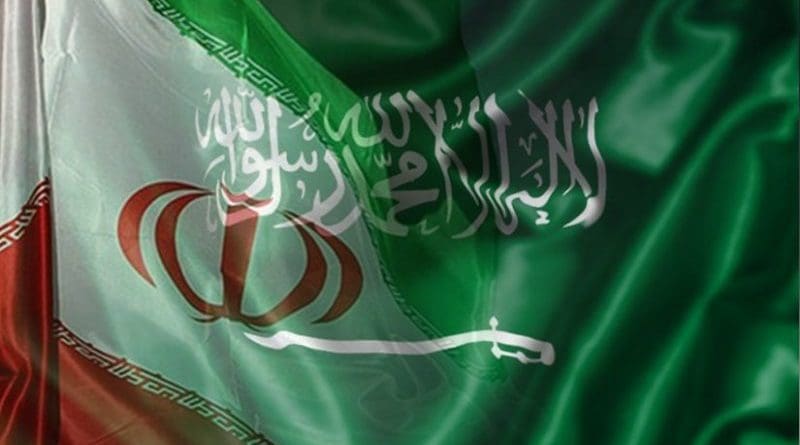Tackling The Roots Of Iran-Saudi Tension – OpEd
Former Iran nuclear negotiator, Seyed Hossein Mousavian, has recently penned an important article that advises Iran to explore the various venues for normalization of relations with Saudi Arabia and to avoid falling in the Riyadh-Tel Aviv “trap”, an implicit concert by Israel and Saudi Arabia to contain the Iranian power in the region and to isolate Iran. Mousavian’s article provides insight for a timely debate on the proper next Iranian steps toward Saudi Arabia which has been criticized by Iran’s top officials for its mishandling of last year’s Hajj that led to the death of several hundred of Iranian pilgrims.
One way to proceed is to address the roots of Saudi misperceptions of Iran, reflected in the Iran-bashing official statements as well as sermons, such as by the Saudi grand mufti, who has questioned Iranians’ Islamic identity. These represent soft power offensives aimed at sowing hatred of Shiite Iran by the Sunni world and thus to further Riyadh’s foreign policy objectives against Iran, one of which is to continuously blame and scapegoat Iran for the Saudis’ own problems, such as their on-going assaults on Yemen, resulting in a tragic humanitarian catastrophe.
Certainly, the well of Iran-Saudi tension is functional for the Western defense contractors, who have sold billions of dollars of arms to Saudi Arabia and other members of the Persian Gulf Cooperation Council. France alone in 2015 has reportedly sold upwards of $16 billion dollars of sophisticated, cutting-edge military hardware to Riyadh. Therefore, it is vitally important to take into consideration the role of third countries and their vested interests in keeping the Iran-Saudi tensions alive, simply because a tranquil regional environment translates into a slump in arms sales as well as arms race in the oil region. Consequently, it is unlikely that simple bilateral efforts toward a much-needed rapprochement between Tehran and Riyadh would suffice and broader input, e.g. by UN and certain regional organizations, may prove helpful in this regard.
Simultaneously, from Yemen to Iraq to Syria to Bahrain, the sparks of Iran-Saudi tensions can be found aplenty, in light of the Saudi accusations of Iranian meddling in Yemen and Bahrain, categorically denied by Iran, and Iran’s suspicion that the rise of ISIS in Iraq may be traced to a Saudi complicity. Certainly, Riyadh is fully implicated in backing the radical jihadists posing as rebels in Syria. On the whole, this is a multi-dimensional, region-wide complex issue that involves several theaters of conflict and occasional cross-cutting loyalties that do not lend themselves to simplistic conclusions.
Of course, as Mousavian has rightly noted, we must objectively tackle the root causes of dispute between Tehran and Riyadh and take into consideration the two countries’ shared as well as competitive interests. Terrorism is one such issue that poses threat to both countries and, therefore, it is illogical and counterproductive by Tehran and Riyadh to allow such shared interests be overshadowed by their present disagreements and differences. Through apt diplomacy and good neighborly intentions, a zone of agreement between Tehran and Riyadh can be mapped out that can be the basis for bilateral (security) dialogue. This, hopefully, can be expanded over time. Regional intermediaries such as Oman, which played a catalytic role in the nuclear negotiations, can be enlisted for this purpose, which can take the form of open and discrete, behind the scenes discussions, in order to remove the misperceptions and replace them with correct perceptions.
Concerning the latter, the Saudi officials and their media have repeatedly accused Iran of seeking the overthrow of the Saudi kingdom and, yet, there is hardly any evidence to corroborate this unfounded allegation. Iran, on the other hand, is genuinely concerned about justice for its pilgrims who died last year and, henceforth, the Saudis, if concerned about de-escalating tensions with Iran, should take proactive steps to assure Iran that there was no foul play at work. Pure accident and (perhaps) negligence was behind last year’s tragedy. As two regional power houses, once portrayed as twin pillars of stability in the region, Iran and Saudi Arabia can easily thread the path toward more tension and proxy wars in the future, which does not help either country’s interests, or they can veer in the direction of crisis-management and stability in their relations, which in turn requires calm heads, avoidance of incendiary rhetoric, and active search for capitalizing on shared or parallel interests.
This article appeared at Iranian Diplomacy

